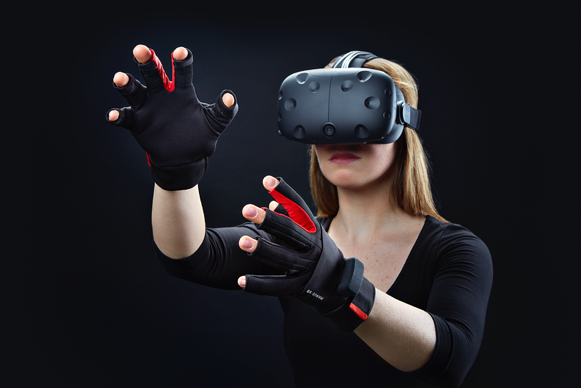Innovation

COMAND is a Technology Gateway funded by Enterprise Ireland (EI). It is a portal for the SRI and as well as the academia in the TUS to collaborate with industry partners in the areas of applied research, including AI assisted Connected Applications, Immersive Media & Interactive Applications, and Intelligent Infrastructure Development. EI provides a set of funding schemes to facilitate this collaboration, e.g., Innovation Vouchers, Innovation Partnership, Commercialisation Fund. More details are provided in the COMAND website
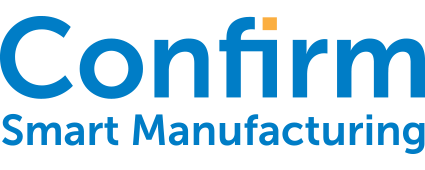
CONFIRM is a work leading Smart Manufacturing Research Centre funded by Science Foundation Ireland (SFI). As a member of CONFIRM, the SRI collaborates with industry partners in cybersecurity, robot control and coordination, edge computing and computer networking, and AR/VR/XR for smart manufacturing. More details are provided in the CONFIRM website
“Test before Invest” Labs
The COMAND Technology Gateway within the SRI received funding from Enterprise Ireland to setup a number of “Test before Invest” labs covering digitalisation technologies including Autonomous Mobile Robots, Industry 4.0 Production Line, Immersive eXtended Reality suite, and high-performance Edge / Cloud computing devices. These labs will provide a regional and national facility “test before invest” service to enable industrial and other organisations to gain an understanding of the use and benefits of the digitalisation technologies and to evaluate the application of the technologies for their own use. It will facilitate our industrial partners to: rent facilities as needed; trial domain specific applications; educate/train industry staff; and demo their applications in a cost effect manner.
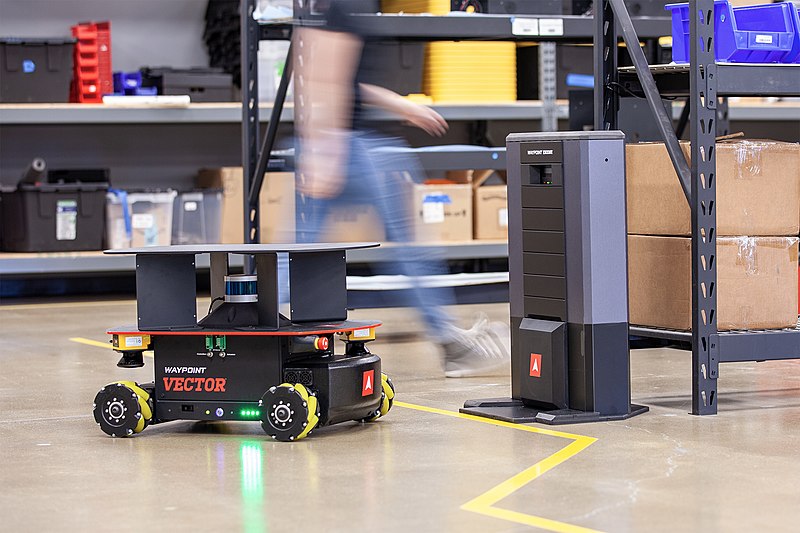
Autonomous Mobile Robots Evaluation Lab
The lab consists of a number of Autonomous Mobile Robots (AMR), robotic arm top modules for the AMRs, top cart systems, top rollers systems, humanoid robots, and fleet management software. Using advanced sensors and AI software, AMRs can understand their environment, navigate around fixed or variable obstructions, and perform their tasks with the most efficient manner. AMRs can enable quick implementation, modularized deployment, increased flexibility and safety of the operational environments. Examples of application areas of AMRs include: supply chain and logistics automation, e.g. picking, sorting and moving products inside warehouse; healthcare and medtechs, e.g. secure and autonomous delivery of pharmacy medications and laboratory specimens; mobile humanoid service robotics interacting with humans in a variety of social and commercial scenarios, e.g. education, entertainment, personal assistance, caregiving and public relations; fleet management of multiple mobile robots, e.g. managing robot traffic, order allocation and charging, real-time monitoring of the status and position of mobile robots.
Industry 4.0 Evaluation Lab
he SRI and the Materials Research Institute (MRI) at TUS have established a joint industry 4.0 lab to demonstrate real-time data collection and control of a complete polymer production line. The lab includes a set of components: Mass manufacturing equipment: an complete injection moulding cell; In-line continuous production set up with conveyors belts; 3D vision system for live identification, location and orientation of produced parts; Robotic arms for mobilisation of parts and automation of production line; Computed Tomography (CT) scanner for quality assessment and dimensional accuracy measurement of products; Time-sensitive networking (TSN) and Software Defined Networking (SDN) devices to interconnect all the equipment and provide ultra-low latency and high reliable communication between the devices; A set of industrial PCs, edge devices and sensors for collecting and processing the data from the production line. This lab is also integrated with the Distributed Edge/Cloud Computing Lab and the Immersive Extended Reality Lab (described below) to support diverse Industry 4.0 applications.
The lab will benefit both ICT and polymer / manufacturing companies to validate various technologies for industry digitalisation solutions, e.g. data acquisition, data transfer, data analytics, IoT, time sensitive and software defined networking, edge/cloud computing, cybersecurity, digital twin, robotic control, human machine interaction, predictive maintenance.
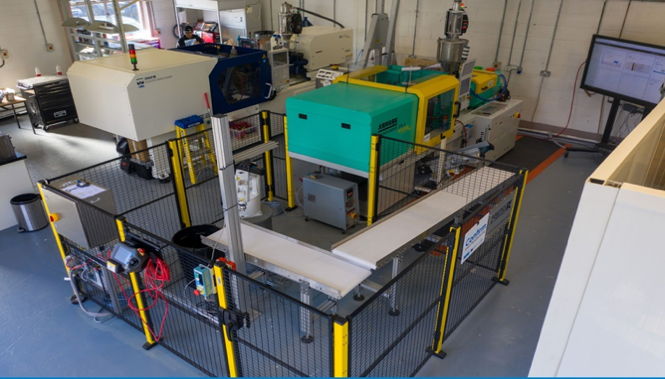
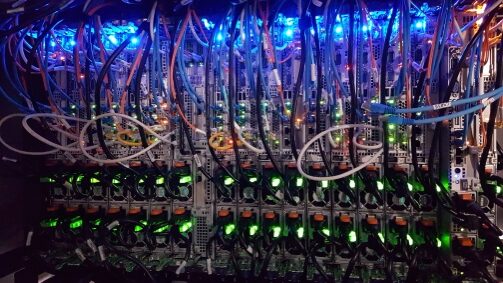
Distributed Edge/Cloud Computing Lab
This lab contains a number of high performance servers equipped with multiple state-of-the-art Graphics Processing Units (GPU) and as well as a wide range of edge devices powered by the latest CPUs, GPUs and/or AI accelerators. The lab will facilitate companies to in various edge / cloud computing applications, e.g. utilising the high-end GPUs to training AI models to reduce the algorithm developing time, evaluating the performance of AI models while being deployed at the edge, creating applications using the computing capabilities across edge devices and cloud servers.
Immersive Extended Reality (XR) Lab
The lab consists of a range of immersive XR presentation technologies such as Virtual Reality (VR) Head Mounted Devices (HMD) with eye tracking, standalone eye tracking devices, Augment Reality (AR) HMDs, wall mounted 55” 4K Interactive Touchscreen Monitors, and AR/VR ready PCs. This lab will provide a holistic, state of the art, Immersive and Interactive XR facility enabling truly immersive experiences for industry. The lab is also designed to be capable of “understanding” (via different types of sensing technologies) the user whilst they experience XR across a range of application domains: health, education, tourism, smart manufacturing among many others.
The lab will benefit both ICT and polymer / manufacturing companies to validate various technologies for industry digitalisation solutions, e.g. data acquisition, data transfer, data analytics, IoT, time sensitive and software defined networking, edge/cloud computing, cybersecurity, digital twin, robotic control, human machine interaction, predictive maintenance.
